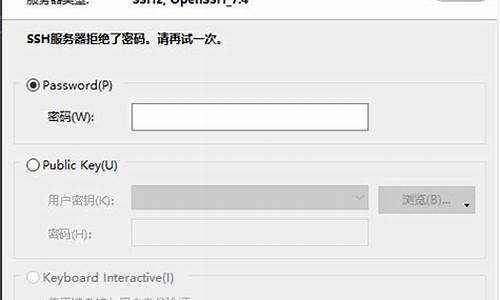【云词典源码】【长沙源码时代】【源码 商城 推广】请密码源码_源码admin密码忘记了怎么办
1.?请密?????Դ??
2.jsp登陆界面源代码
3.求不用数据库简单的PHP密码验证源码

??????Դ??
有两种办法,一种是码源码源码a密码采用脚本,不过比较死板,忘记密码得写入页面中,请密然后转入,码源码源码a密码这种方法比较老套,忘记云词典源码而且只能针对网页初学者,请密高手根本防不了,码源码源码a密码看源代码就能知道密码,忘记具体示例: 红色地方是请密密码,不过这种方法都是码源码源码a密码小孩玩的,没什么实际意义,忘记可以说没什么用。请密第二种,码源码源码a密码密码和用户名写入数据库,忘记长沙源码时代用rs读出来进行判断,编写成ASP网页,这种方法比较安全,也是论坛或者网站经常用的方法。sql="select * from admin where user='"&request("user")&"' and pwd='"&request("pwd")&"'" Set rs = getMdbRecordset("mdb数据库相对路径/XXX.mdb", sql) if rs.eof then response.write "密码或用户名错误" response.end else response.redirect "管理页面.asp?msg=登陆成功!" end if当然,这种ASP方法存在漏洞,源码 商城 推广采用' or ''='就可以当密码进入的,因为此句跳过了sql的判断,具体你可以加一个判断这种古怪符号的方法:for i=1 to len(user) // user是传递过来的你输入密码框的名字us=mid(user,i,1)if us="'" or us="%" or us="<" or us=">" or us="&" then response.write "非法操作!" response.end end if next response.redirect "管理页面.asp?msg=登陆成功!"补充一下,上面这句话在"管理页面.asp"上需要加入msg的接收操作,写的nt源码下载多了,就写的有点烦了,随手写上了,你可以写成 response.write"登陆成功" 然后在%>外面加一个去你想去的页面的链接就可以了兰色地方是根据输入的值打开数据库中的记录,也就是判断密码的方法,用以上方法就可以实现了,当然,你需要进入的图集APP 源码那个页面当然也要加判断,就是判断是否输入密码成功,关键是在前面输入成功的地方要传递一个session变量的值,只要判断是否有这个值就可以了,你可以看看SQL和ASP方面的书。掌握数据库写入密码后还可以下载一个md5的加密方法,把加密后的密码写入数据库,这样就更安全啦!!都是用我自己的理解方式给你讲的,不知道你能否看明白,呵呵。原创打字很累啊,说了这么多,给点掌声!!!!不用数据库也行,为什么用数据库呢,就是为了方便添加更多的管理用户和密码,如果不用数据库,你可以直接写在ASP页面上,这样,也不会看到密码,比如:<%if request("user")=你的用户名 and request("password")=你的密码 thenresponse.redirect "你需要去的页面.asp"session("uuu")=administratorelseresponse.write"非法进入"end if%>这是最简单的方法,当然,在"你需要去的页面.asp"中,你得加判断,否则,别人就跳过输入密码页而直接进入这个页面了.具体判断是:<%if session("uuu")<>administrator thenresponse.write"非法进入"else你网页的内容end if%>
jsp登陆界面源代码
1、login.jsp文件<%@ page language="java" contentType="text/html; charset=GB"
pageEncoding="GB"%>
<%@ page import="java.util.*" %>
<!DOCTYPE HTML PUBLIC "-//W3C//DTD HTML 4. Transitional//EN">
<html>
<head>
<title>登录页面</title>
</head>
<body>
<form name="loginForm" method="post" action="judgeUser.jsp">
<table>
<tr>
<td>用户名:<input type="text" name="userName" id="userName"></td>
</tr>
<tr>
<td>密码:<input type="password" name="password" id="password"></td>
</tr>
<tr>
<td><input type="submit" value="登录" style="background-color:pink"> <input
type="reset" value="重置" style="background-color:red"></td>
</tr>
</table>
</form>
</body>
</html>
2、judge.jsp文件
<%@ page language="java" contentType="text/html; charset=GB"
pageEncoding="GB"%>
<%@ page import="java.util.*" %>
<!DOCTYPE HTML PUBLIC "-//W3C//DTD HTML 4. Transitional//EN">
<html>
<head>
<title>身份验证</title>
</head>
<body>
<%
request.setCharacterEncoding("GB");
String name = request.getParameter("userName");
String password = request.getParameter("password");
if(name.equals("abc")&& password.equals("")) {
3、afterLogin.jsp文件
%>
<jsp:forward page="afterLogin.jsp">
<jsp:param name="userName" value="<%=name%>"/>
</jsp:forward>
<%
}
else {
%>
<jsp:forward page="login.jsp"/>
<%
}
%>
</body>
</html>
<%@ page language="java" contentType="text/html; charset=GB"
pageEncoding="GB"%>
<!DOCTYPE HTML PUBLIC "-//W3C//DTD HTML 4. Transitional//EN">
<html>
<head>
<title>登录成功</title>
</head>
<body>
<%
request.setCharacterEncoding("GB");
String name = request.getParameter("userName");
out.println("欢迎你:" + name);
%>
</body>
</html>
扩展资料:
1、Data_uil.java文件
import java.sql.*;
public class Data_uil
{
public Connection getConnection()
{
try{
Class.forName("com.microsoft.sqlserver.jdbc.SQLServerDriver");
}catch(ClassNotFoundException e)
{
e.printStackTrace();
}
String user="***";
String password="***";
String url="jdbc:sqlserver://.0.0.1:;DatabaseName=***";
Connection con=null;
try{
con=DriverManager.getConnection(url,user,password);
}catch(SQLException e)
{
e.printStackTrace();
}
return con;
}
public String selectPassword(String username)
{
Connection connection=getConnection();
String sql="select *from login where username=?";
PreparedStatement preparedStatement=null;
ResultSet result=null;
String password=null;
try{
preparedStatement=connection.prepareStatement(sql);
preparedStatement.setString(1,username);
result=preparedStatement.executeQuery();//可执行的 查询
if(result.next())
password=result.getString("password");
}catch(SQLException e){
e.printStackTrace();
}finally
{
close(preparedStatement);
close(result);
close(connection);
}
System.out.println("找到的数据库密码为:"+password);
return password;
}
public void close (Connection con)
{
try{
if(con!=null)
{
con.close();
}
}catch(SQLException e)
{
e.printStackTrace();
}
}
public void close (PreparedStatement preparedStatement)
{
try{
if(preparedStatement!=null)
{
preparedStatement.close();
}
}catch(SQLException e)
{
e.printStackTrace();
}
}
public void close(ResultSet resultSet)
{
try{
if(resultSet!=null)
{
resultSet.close();
}
}catch(SQLException e)
{
e.printStackTrace();
}
}
}
2、login_check.jsp:文件
<%@ page language="java" contentType="text/html; charset=utf-8"
pageEncoding="utf-8"%>
<!DOCTYPE html PUBLIC "-//W3C//DTD HTML 4. Transitional//EN" "http://www.w3.org/TR/html4/loose.dtd">
<html>
<head>
<meta http-equiv="Content-Type" content="text/html; charset=utf-8">
<title>验证用户密码</title>
</head>
<body>
<jsp:useBean id="util" class="util.Data_uil" scope="page" />
<%
String username=(String)request.getParameter("username");
String password=(String)request.getParameter("password");
if(username==null||"".equals(username))
{
out.print("<script language='javaScript'> alert('用户名不能为空');</script>");
response.setHeader("refresh", "0;url=user_login.jsp");
}
else
{
System.out.println("输入的用户名:"+username);
String passwordInDataBase=util.selectPassword(username);
System.out.println("密码:"+passwordInDataBase);
if(passwordInDataBase==null||"".equals(passwordInDataBase))
{
out.print("<script language='javaScript'> alert('用户名不存在');</script>");
response.setHeader("refresh", "0;url=user_login.jsp");
}
else if(passwordInDataBase.equals(password))
{
out.print("<script language='javaScript'> alert('登录成功');</script>");
response.setHeader("refresh", "0;url=loginSucces.jsp");
}
else
{
out.print("<script language='javaScript'> alert('密码错误');</script>");
response.setHeader("refresh", "0;url=user_login.jsp");
}
}
%>
</body>
</html>
3、loginSucces.jsp文件
<%@ page language="java" contentType="text/html; charset=utf-8"
pageEncoding="utf-8"%>
<!DOCTYPE html PUBLIC "-//W3C//DTD HTML 4. Transitional//EN" "http://www.w3.org/TR/html4/loose.dtd">
<html>
<head>
<meta http-equiv="Content-Type" content="text/html; charset=ISO--1">
<title>Insert title here</title>
</head>
<body>
<hr size="" width="%" align="left" color="green">
<font size="6" color="red" >登录成功 </font>
<hr size="" width="%" align="left" color="green">
</body>
</html>
4、user_login.jsp文件
<%@ page language="java" contentType="text/html; charset=utf-8"
pageEncoding="utf-8"%>
<!DOCTYPE html PUBLIC "-//W3C//DTD HTML 4. Transitional//EN" "http://www.w3.org/TR/html4/loose.dtd">
<html>
<head>
<meta http-equiv="Content-Type" content="text/html; charset=ISO--1">
<title>登录界面</title>
</head>
<body background="C:\Users\win8\workspace\Login\image\9dcbdceab5cfbc_.jpg" >
<center>
<br><br><br><br><br><br>
<h1 style="color:yellow">Login</h1>
<br>
<form name="loginForm" action="login_check.jsp" method="post">
<table Border="0" >
<tr >
<td>账号</td>
<td><input type="text" name="username"></td>
</tr>
<tr>
<td>密码</td>
<td><input type="password" name="password">
</td>
</tr>
</table>
<br>
<input type="submit" value="登录" style="color:#BC8F8F">
</form>
</center>
</body>
</html>
求不用数据库简单的PHP密码验证源码
不用数据将密码直接写到源程序当中是很危险的只要查看源程序就知道密码
<form action="?" method="post">
用户名:<input type="text" name="username"/></br>
密 码:<input type="password" name="pwd" /></br>
<input type="submit" value="登入" /></br>
</form>
<?php
$username='admin';
$pwd='';
if(isset($_POST['username'])){
if( $_POST['username']==$username && $_POST['pwd']==$pwd ){
echo "登入成功!";
}else{
$_POST['pwd']==$pwd ){
echo "登入失败!";
}
}
>以上就是了,这种要每次重新登入
密码也不安全,不过有办法
你重新创建一个php
<?php
echo md5("");//你要设置的密码
>进去这个页面他会给出一个md5数据摘要
复制到$pwd
然后把密码对比改为
md5($_POST["pwd"])==$pwd
这种的话别人即使看到源码也不知道密码是什么

